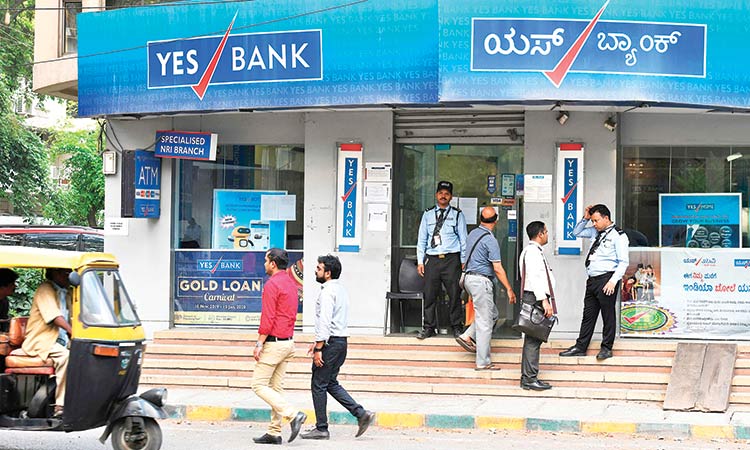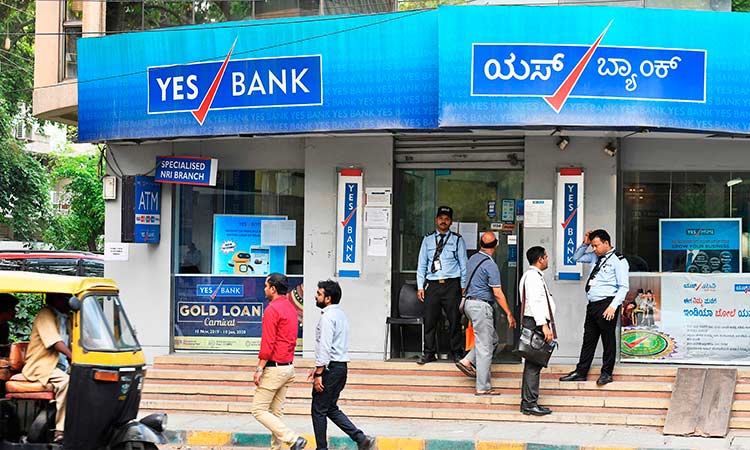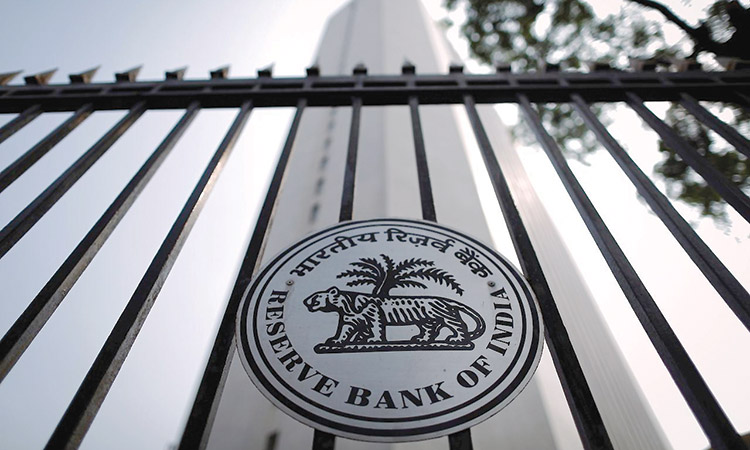SBI may implement resolution plan for Yes Bank before RBI deadline

This photo shows a branch of Yes Bank in Bangalore, India. File photo
SBI chairman Rajnish Kumar on Saturday said the bank will try to implement the resolution plan for the rescue of Yes Bank before the RBI deadline.
Buying a 49 per cent stake in Yes Bank would involve an investment of Rs2,400 crore, that is if it decides to go alone. Kumar also said many potential investors, 23 in total, have approached SBI after seeing the investment scheme.
READ MORE
Indian shares rupee plunge as Yes Bank woes hit bank stocks
Public sector banks in India posts Rs3,221 crore profits in first half
The minimum investment for SBI would be Rs5,500 crore if it picks 26 per cent stake in Yes Bank.
Rajnish Kumar said the SBI has time till Monday to respond back to the Reserve Bank of India (RBI) on the draft scheme for rescue of Yes Bank and it may or may not pick up 49 per cent stake.
"Whether SBI takes a 49 per cent or 26 per cent stake in Yes Bank will depend on the investment involved. We are also examining the interest received from some other investors. SBI board will take the final call on this," Kumar said.
Many investors have approached SBI over Yes Bank and investment decisions are by choice.
Kumar also said many potential investors, 23 in total, have approached SBI after seeing the investment scheme. The minimum investment for SBI would be Rs5,500 crore if it picks 26 per cent stake in Yes Bank.
He told a press conference in Mumbai that the SBI's legal team has been doing due diligence on draft scheme proposed by RBI. The Reserve Bank on Friday came out with the "draft reconstruction scheme" under which SBI will bring in Rs2,500 crore for a 49 per cent stake in the private sector bank.
"Don't believe that our contribution toward Yes Bank will exceed Rs10,000 crore", he said.
"SBI may or may not pick the entire 49 per cent in the bank," he said.
Kumar hoped that SBI would get many co-investors to implement this scheme. He said a credible name was need in this reconstruction effort, which is why SBI has come forward. If SBI goes alone for 49 per cent stake, the bank will invest Rs2,450 crore in Yes Bank.
"Many investors have approached SBI over Yes Bank and investment decisions are by choice. There are no compulsions. Our board mandate is that we must maintain 0.5 per cent above regulatory minimum capital adequacy. We will continue to do that and have to give assurance to potential investors and depositors.”
He said SBI has the right to appoint two nominee directors and suggest names for Managing Director and Chief Executive Officer's role. That will be done.
Rescue efforts
Meanwhile the state-owned insurer Life Insurance Corporation (LIC) may consider joining RBI efforts to rescue Yes Bank.
This can help to increase capital infusion under the draft scheme to rescue Yes Bank designed by the Reserve Bank of India.
Official sources said that RBI, SBI and finance ministry officials were in touch with the insurer to see its interest to participate in the scheme. LIC spokesperson, however, could not be reached for comments.
The current rescue of Yes Bank involves State Bank of India (SBI) buying 49 per cent stake in Yes Bank for Rs 2,450 crore. But SBI chairman Rajnish Kumar on Saturday said whether it takes a 49 per cent or 26 per cent stake in Yes Bank will depend on the investment involved.
Sources said that in wave of the issues involving burden falling on a single investor to rescue Yes Bank, other investors including LIC is being considered to join with additional equity participation. LIC already holds 8.06 per cent in Yes Bank.
For LIC, recovery of Yes Bank is important it itself has large exposure in bank's debt instruments that has now been downgraded by all rating agencies. At the end of the December quarter (Q3), LIC had an exposure of Rs8,051 crore to the debt instruments of Yes Bank.
Indo-Asian News Service








